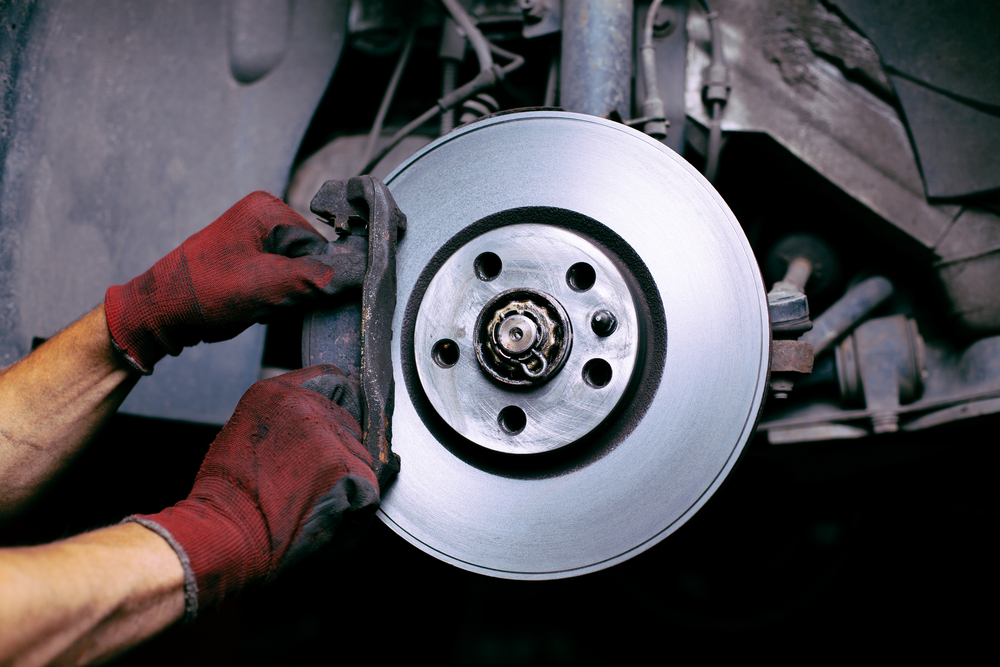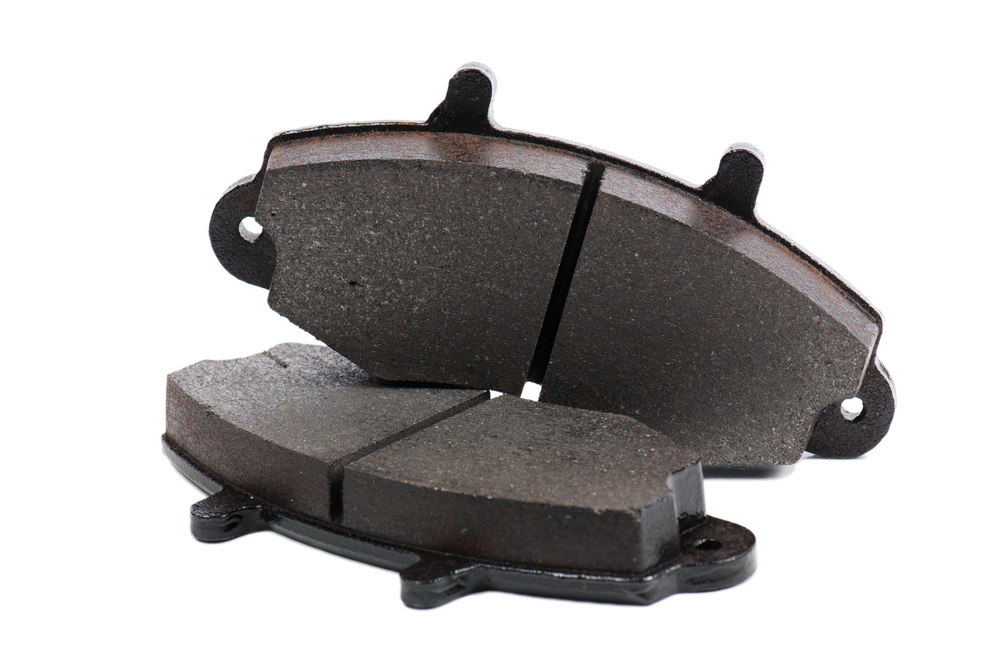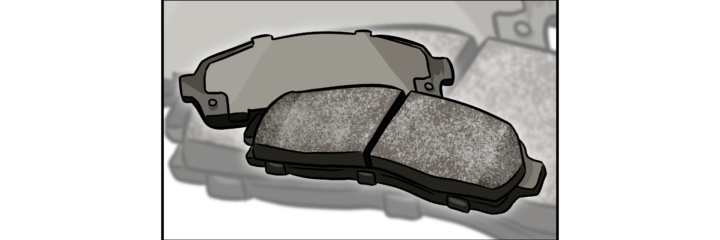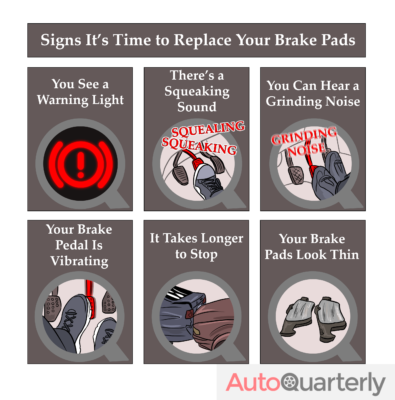Brake pads are an integral part of your vehicle and need regular maintenance, much like many other parts of your car. If you’re not sure when you last checked your brake pads or got them replaced, or you’re experiencing some unfortunate sounds while driving, you may be wondering exactly how long brake pads are meant to last.
In this article, we will answer your questions about when you should be replacing your brake pads, give you the rundown on exactly why brake pads are an important part of your car, and tell you what you can do to make them last longer.
What Are Brake Pads and Why Are They Important?
The brake pads on your car are an important part of the vehicle’s brake system – a set of parts that control the stoppage of your car. The brake pads themselves are created with a material that minimizes friction; as you press down on the brake pedal, the brake pads press against the brake rotors, generating heat and friction that stop the turn of your wheels.
Without a set of functioning brake pads in place, you would not be able to slow down or stop your car, which can obviously be very dangerous. Even if your brake pads are just beginning to wear down, you will start to lose some of the braking control over your vehicle. It is very important to keep your brake pads in good shape to reduce the risk of an accident or a crash.
How Long Do Brake Pads Last?
Due to the varying nature of how individuals use their cars and the wide range of brake pad manufacturers, it can be hard to pinpoint exactly how long your brake pads will last before needing a change. The typical use of a set of brake pads falls between 25,000 and 65,000 miles. However, this number can change depending on your type of car, how you use your car, the speed you drive, and the environment you drive in.
For tips on making your brake pads last as long as possible, check out our section below.
Signs It’s Time to Replace Your Brake Pads
If you’re not quite sure if it’s time or not to replace your brake pads, look out for these signs that let you know your brake pads will need replacing as soon as possible.
You See a Warning Light
One of the easiest ways to determine if your brake pads are due for a replacement is if an indicator light appears on your dashboard. This light is often the same one that will appear when your parking brake is engaged, so if you see the brake warning light lit up even without your parking brake in use, it might be time to get those brake pads checked out.
There’s a Squeaking Sound
A squealing or squeaking sound that starts to appear every time you press down on your brakes is a pretty good indicator that it’s time to change your brake pads. This sound is a result of your pads being so worn down that the brake caliper starts to grind against the brake rotor.
If you hear this sound and don’t address the issue quickly, there is a chance your rotors will become so damaged they also need to be replaced.
You Can Hear a Grinding Noise
A grinding noise is caused in a similar situation to the squeaking or squealing sound we discussed above. If you hear this loud grinding noise when you apply any sort of pressure to the brakes, it is time to get the brake pads replaced.
Your Brake Pedal Is Vibrating
If the brake pedal feels like it’s vibrating every time you press down on it, there’s a good chance your brake pads, and possibly your brake rotors, have uneven wear on them, which creates the feeling of vibration. Here’s a handy resource that provides a visual guide to uneven wear.
It Takes Longer to Stop
One of the more alarming signs of worn-out brake pads is if it takes you longer than usual to come to a stop or if you need to apply increasingly more pressure to do so. In this situation, you need to get your brakes looked at as soon as possible.
This longer stoppage time could be a result of completely worn brake pads or a leak in the brake fluid line. Either way, it is an issue that needs to be addressed quickly to prevent an accident or higher repair costs down the line.
Your Brake Pads Look Thin
To examine your brake pads, you can look between the spokes of your wheel and observe them for yourself. If the pads appear to be excessively thin (approximately less than 1/4 of an inch thick), it is time to exchange the pads for some new ones. This video can help you understand the best way to examine the thickness of your brake pads.
How Often Should Brake Pads Be Replaced?
Since it can be very hard to tell when exactly your brake pads need to be replaced, especially if you don’t experience any of the warning signs we discussed above, it can be hard to prevent braking issues before they happen.
A good guideline here is to replace the brake pads after around 50,000 miles of usage if you have maintenance concerns. It can also be very helpful to check on the size of the brake pads every time you get an oil change in order to monitor them and make sure they aren’t getting too thin. Remember, your brake pad should be no less than 1/4 of an inch thick.
Can You Change Brake Pads Yourself?
You may be pleasantly surprised to learn that you can, in fact, change your brake pads at home. The steps for changing brake pads are fairly straightforward and not too difficult or time-consuming. You may be able to save yourself time and money by changing your brake pads at home (this video can help you learn how), but there is nothing wrong with taking your car in to a professional for a brake pad replacement if that is more your style.

How to Make Your Brake Pads Last Longer
If you’re worried about how fast you could potentially burn through those brand-new brake pads and want to learn how to make them last as long as possible, you can follow these tips to get the most use out of them.
Slow Down
When you drive fast, the odds are that you will be braking fast and putting a lot of pressure quickly on your brake pedal. This can create a lot of heat and friction in order to stop your car in a timely fashion, which is one of the things that most wear down your brake pads.
Driving a little slower and being able to brake in a more leisurely fashion is much better for the longevity of your brake pads.
Avoid Carrying Heavy Loads
If your car is extra heavy or loaded down with lots of cargo, it takes much more effort to bring your car to a stop. This extra weight can put additional strain on the brake pads every time you use them, wearing them out more rapidly.
Try Engine Braking
Engine braking is the technique of taking your foot off the accelerator shortly before you will have to brake. This gives the engine time to disengage and makes the transition to braking smoother, lightening the load on your brake pads and allowing them to last longer.
Avoid Riding Your Brakes
You shouldn’t be using your brake pedal as a footrest or constantly be applying a slight amount of pressure to it while driving. Doing this can activate your brakes, no matter how lightly you push down the brake pedal, which translates to more wear in a shorter amount of time.
To get the most use out of the brake pads, try leaving your foot hovering above the brake pedal instead of resting on it, and don’t stamp down on your brakes for a prolonged period of time.

Final Thoughts
Knowing exactly when to replace your brake pads can be a little difficult, especially if you don’t remember when exactly you got them installed in the first place. However, if you are starting to notice that your car is less responsive when stopping, or there is a strange noise coming from your brakes, it may be the right time to change those brake pads out.
You may even wish to go the extra mile and change your car’s brake system entirely. If so, here’s our guide to the best car brakes in 2024.
Otherwise, as long as you regularly monitor your brake pads and keep an eye out for any warning signs, you will surely be prepared to replace your brake pads as soon as they need it.



